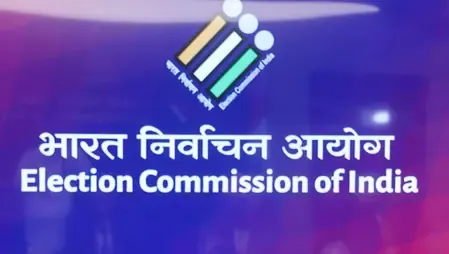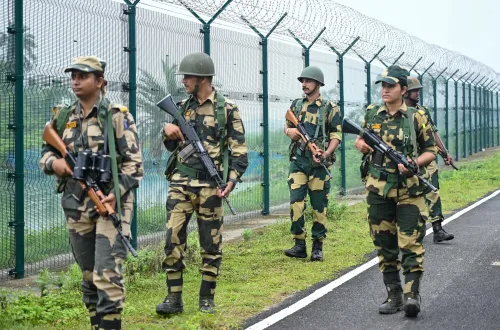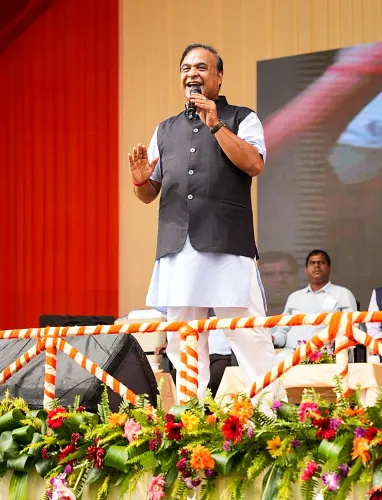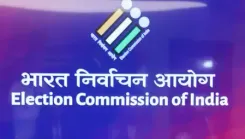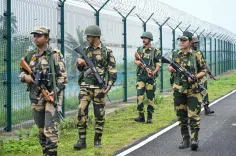Janakrosh Yatra Enters Its Second Day: BJP Criticizes Karnataka Government for Favoring Muslims
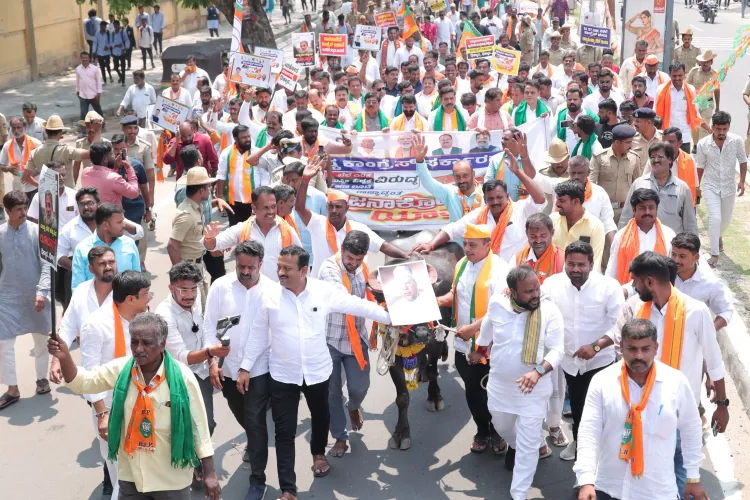
Synopsis
Key Takeaways
- The Janakrosh Yatra is a protest against the Karnataka government's policies.
- Allegations of favoritism towards Muslims have been made by BJP leaders.
- Protests occurred in multiple towns, including Mandya, Indi, and Ilkal.
- Concerns were raised about project mismanagement and corruption.
- BJP leaders emphasize issues affecting all socioeconomic classes.
Mandya (Karnataka), April 8 (NationPress) The Janakrosh Yatra organized by the Karnataka BJP unit has reached its second day on Tuesday.
Numerous party workers and state leaders participated in the protest march in Mandya city, chanting slogans against the Karnataka government regarding price increases and its alleged ‘appeasement’ strategy.
Protest marches were also conducted in Indi and Ilkal towns of northern Karnataka.
While addressing the crowd at the protest, Leader of the Opposition (LoP) R. Ashoka asserted, “Muslims receive prompt financial assistance for weddings and enjoy reservations in government contracts under the Congress-led government. However, Hindus are left with nothing. The BJP champions equal opportunities for all, whereas the Congress has provided everything solely to Muslims.”
“In Mandya, attempts to raise the Hanuman flag were thwarted, yet Deputy Chief Minister D.K. Shivakumar claims to be a Hindu,” he criticized.
He further accused Chief Minister Siddaramaiah of encroaching on 14 sites belonging to the Mysuru Urban Development Authority (MUDA), only returning them after the BJP voiced its concerns.
He mentioned that the protest against irregularities within the Valmiki Development Corporation led to a minister's resignation.
Regarding the Mekedatu project, he stated that despite Congress leaders discussing its implementation, no progress has been made since they assumed power. “Deputy CM Shivakumar has remained silent because Tamil Nadu’s Stalin is his brother,” he claimed.
He alleged that although Prime Minister Narendra Modi's government allocated funds for establishing a university in Mandya, the funds were misappropriated, resulting in the cancellation of the project.
Former minister and BJP MLC, C.T. Ravi, on Tuesday accused the state government of indulging in communal politics by showing favoritism towards one group while discriminating against another.
He asserted that the protest was aimed at condemning the government’s anti-people policies, soaring prices, and corruption.
In response to the Chief Minister’s earlier comments suggesting that BJP leaders should protest against the central government for increasing LPG cylinder prices by Rs 50, he countered, “One-and-a-half years ago, a cylinder was priced at Rs 1,113. Prime Minister Modi had reduced it by Rs 200 once and then by Rs 100. Even with the recent Rs 50 hike, it remains Rs 250 cheaper overall.”
He further lambasted the state government for previously raising petrol and diesel prices by Rs 3.93 per liter, with another increase of Rs 2 now.
“While the Prime Minister was lowering prices, this ineffective government continues to raise them,” Ravi charged.
Former minister B. Sriramulu accused the Chief Minister of taking out a loan of Rs 2 lakh crore, announcing that the BJP will reach out to taluks and villages to raise public awareness against the government.
Former MP and BJP leader Sumalatha Ambareesh, speaking in Ilkal, remarked, “For two years, we heard the word ‘free’ repeatedly. Now, we’ve arrived at a stage where schemes like Gruha Lakshmi and numerous other 'Bhagyas' are being neglected. It’s a distressing and unfortunate situation.”
“Not just the poor and middle class, but even the upper-middle class is now uncertain about how to navigate daily life,” she added.


